Faculty | Short Read
Something’s Brewing
Ramapo Students Research Beer Yeast
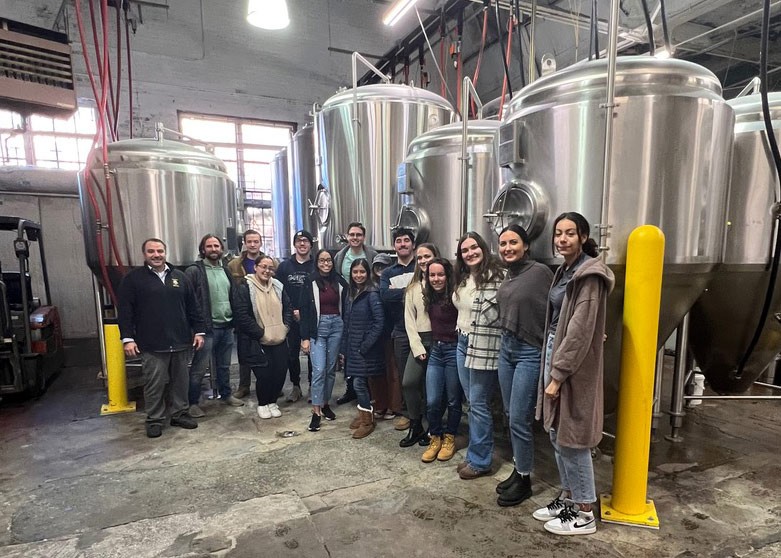
By Lisa Ambrose, Director of Communications & Public Relations | Winter 2023
You don’t need to show your ID to take Dr. Joost Monen’s upper-level biology course, “The Biology of Brewing.” The course provides students with an understanding of the science behind beer making with an emphasis on the role that yeast play during fermentation by not only producing alcohol, but also a variety of aromatic compounds based on their genetic background.
Why beer? Simply put: It gets more students involved and excited about science. Monen, an associate professor of biology, began a research project a few years ago looking at the role yeast genetics play in beer making. He developed the new topics course as a result of this shift in his research. “It seemed to me to be a perfect transition as yeast are an extremely important and heavily utilized organism for all types of biological research,” said Monen, “Students gravitate towards the application of yeast in the brewing industry.” Including a research component to the course was critical, knowing from years of being a faculty mentor that students experience immense growth and understanding during hands-on, experiential learning opportunities like this. “Students work on trying to address novel research questions, which is where the most significant learning gains are achieved,” said Monen.
Students worked in the lab on campus, where they were each given a yeast strain that they characterized over the course of the semester to determine their yeast’s physical and genetic properties. They were able to connect the role that genetics play in producing particular flavors and helped reinforce why selecting the appropriate yeast strain is so important when making particular styles of beer. They also visited Ramstein Brewhaus in Butler, New Jersey, where they got to see firsthand how beer is made. Greg Zaccardi, owner and founder of High Point Brewery, spent time discussing the brewing process and answering questions.
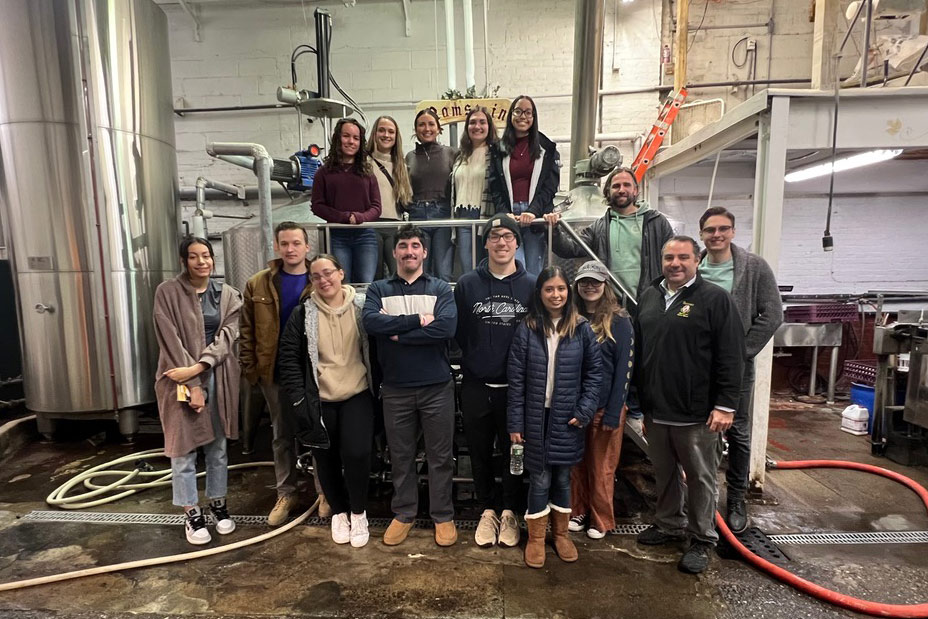
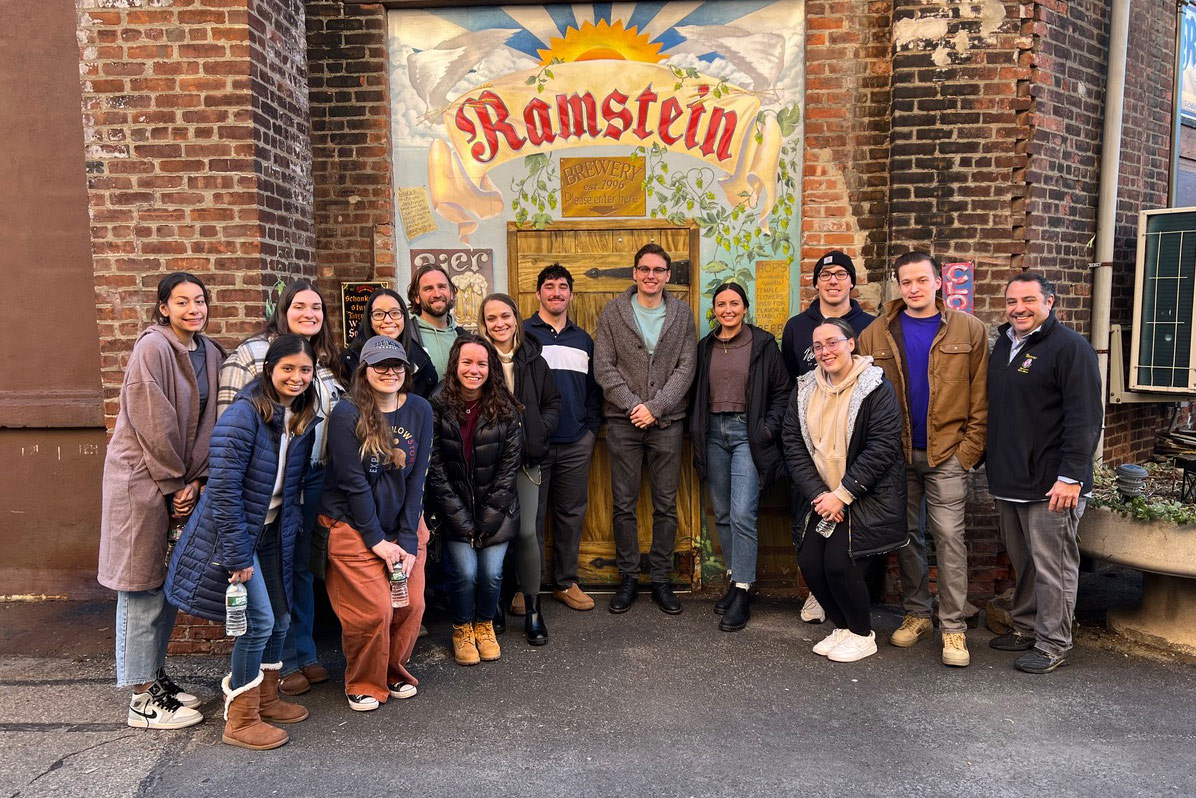
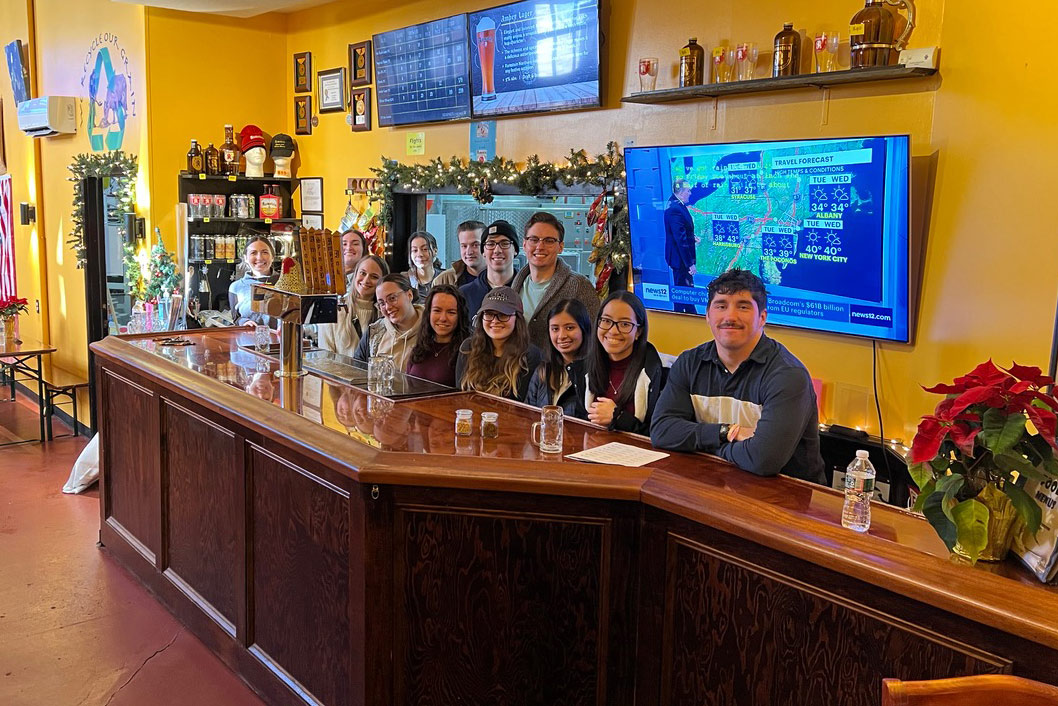
Outside of this course, Professor Monen and Zaccardi are collaborating with Ramapo students to investigate how the hefeweizen yeast strain is unable to be re-pitched frequently, a process whereby yeast can be reused to make consecutive batches of beer, while continuing to produce the same quality of beer. Preliminary data from their research suggest that they can solve this re-pitching issue for the brewery.
Students who work with faculty like Professor Monen not only gain skills and techniques in the lab, but they learn how to problem solve and be critical thinkers by tackling real-world problems through a scientific approach. “They are not only conducting and reporting on an experiment for a grade; they are using their knowledge and abilities to answer real scientific questions for which we don’t have the answers,” said Monen. “I am looking forward to continuing this research with students at the forefront, and I am grateful for the support that Ramapo College provides in order to give students these types of experiences.”
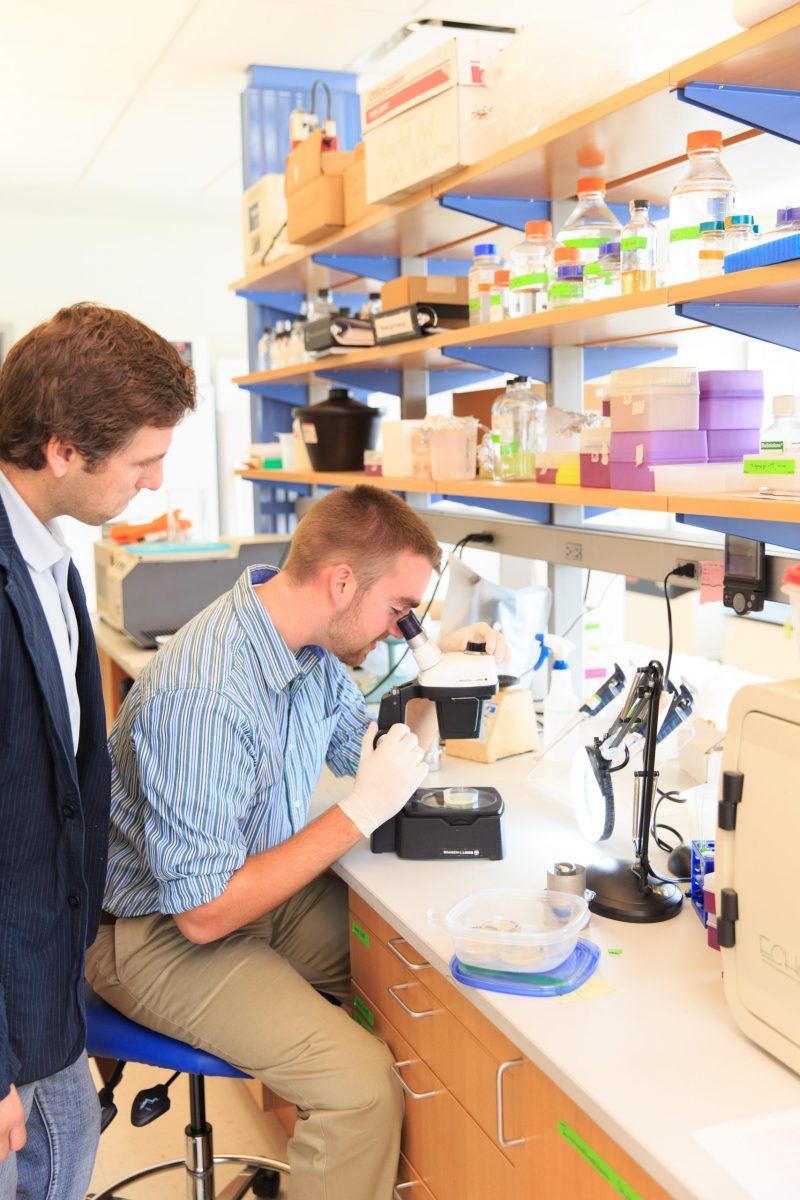
About Dr. Joost Monen
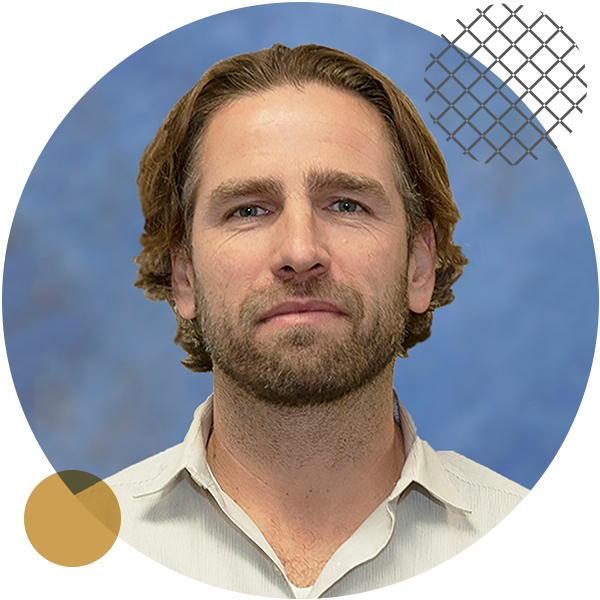
Joost Monen is an associate professor of biology at Ramapo College of New Jersey in the School of Theoretical and Applied Science, where he teaches genetics, upper level biology courses, and develops curriculum in the Biology, Biochemistry, Bioinformatics, and Neurobiology Convening groups. He received a PhD of Biomedical Sciences at the University of California, San Diego in 2008 working in Dr. Arshad Desai’s lab in the Department of Cellular and Molecular Medicine at the Ludwig Institute for Cancer Research. He later went on to complete an NIH funded Post-Doctoral Fellowship in Neurobiology at Cornell University in the lab of Dr. Joe Fetcho. Since coming to Ramapo College, Professor Monen has been committed to contributing to high impact pedagogical practices by getting students involved in research, both as a mentor and as the former Co-Director of the College Honors Program. To date, he has mentored over 30 students on various research projects which has led to over 60 student-involved presentations at local and national meetings.
